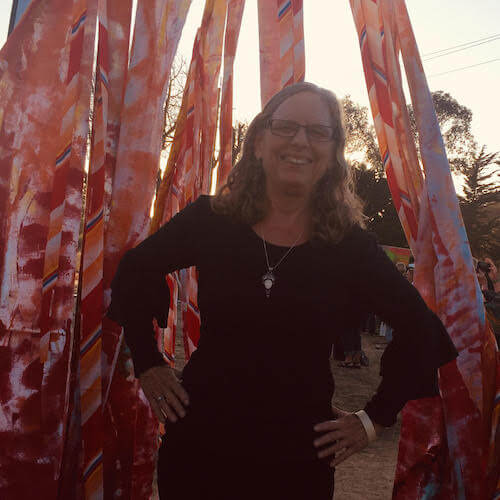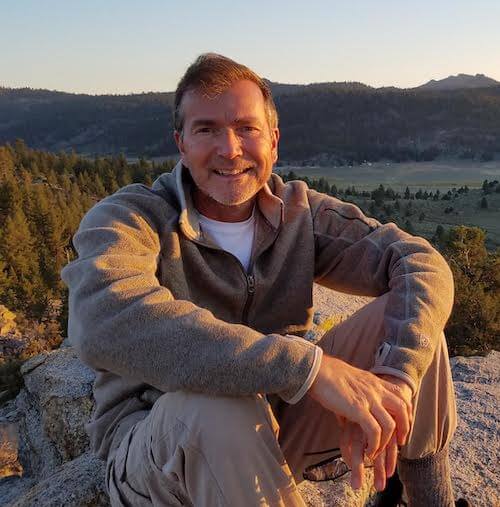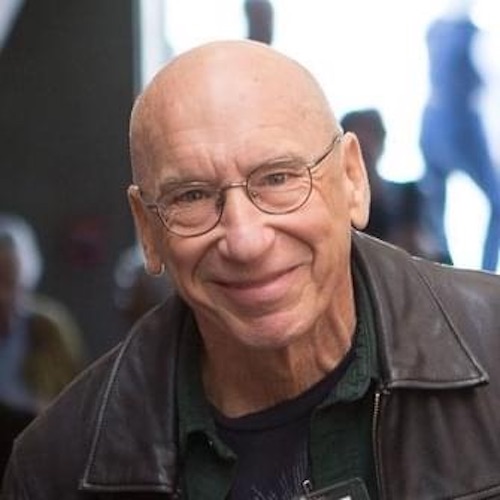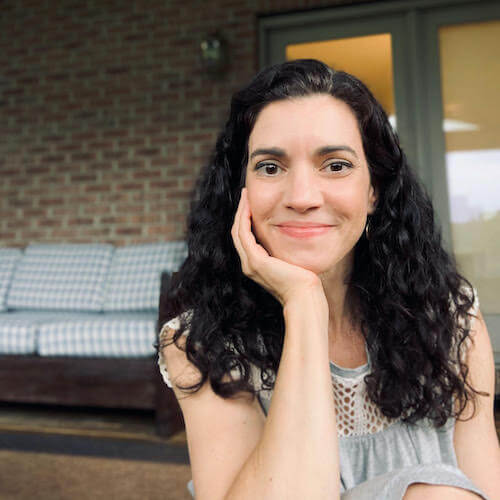
Given Big Sur’s mild coastal climate, signs of autumn in the Esalen Farm & Garden can be subtle. Yes, there are tables of winter squash curing in the sun, but all around them are bins of ripe tomatoes, rows of strawberries and innumerable bright flowers buzzing with insect life.
“Fall can be a little conflicting here,” says Garden Supervisor Beth Burzynski. “The weather is clear and warm, and maybe it’s tempting to plant. But day length is getting shorter, so crops grow more slowly. And autumn really is the end of a long growing season for us. It’s time for the garden to rest.”
Beth came to Esalen after completing the farming program at UC Santa Cruz and working at several other organic vegetable farms. She cites her love of food as the reason she started farming in the first place. “One of the things that drew me to Esalen was the way the food we grow stays here and feeds the community of staff, students and volunteers. Knowing where your food is grown is so valuable. And you get the best food if you grow it yourself.”
Part of producing the most delicious crops is helping the Garden rest and replenish by tending to the soil. “Microbes are what nourish the plants,” Beth explains. “Even when we dig, we’re disturbing those microbe networks and communities underground.” No-till farming practices are one way the Farm & Garden cares for the soil. No-till involves leaving the soil undisturbed once a plant is sown. Plants are harvested by clipping the base and leaving the roots in the ground. Root matter is a hub for microbe life, so by leaving it intact, that vitality transfers to next season’s crops.
Another tool Esalen farmers use to keep soil healthy through Big Sur’s rainy winter season is cover crops, which are planted not for harvest but as protection from rain damage and erosion. A final way to care for the soil? Just let it be. “We try to tread lightly,” says Beth. “We have amazing soil here because it has been tended for 50 years. It doesn’t need a lot, so we back off as much as we can.”
Also passed down through that 50-year Esalen lineage is a strong practice of individual and community connection and growth. “We practice a relational agriculture here,” Beth shares. “We have daily check ins and weekly process groups for sharing what is happening with us on any level — personal or in work. On a daily basis we’re vulnerable to each other and, in a sense, we bring our whole self to work. That makes our relationships with each other deeper and our crew tight knit.” Sounds a little like what happens when you tend the soil.
Next time you’re at Esalen, join us in the Farm & Garden for morning harvest as part of our ongoing Experiential Program. On Monday and Friday mornings, join an F&G steward for a mindfulness practice to wake up to the present moment. Then, get connected with the land by harvesting greens, herbs or other veggies bound for the kitchen to become part of that day’s shared community meals. See you in the Garden!


“Remembering to be as self compassionate as I can and praying to the divine that we're all a part of.”
–Aaron
“Prayer, reading, meditation, walking.”
–Karen
“Erratically — which is an ongoing stream of practice to find peace.”
–Charles
“Try on a daily basis to be kind to myself and to realize that making mistakes is a part of the human condition. Learning from our mistakes is a journey. But it starts with compassion and caring. First for oneself.”
–Steve
“Physically: aerobic exercise, volleyball, ice hockey, cycling, sailing. Emotionally: unfortunately I have to work to ‘not care’ about people or situations which may end painfully. Along the lines of ‘attachment is the source of suffering’, so best to avoid it or limit its scope. Sad though because it could also be the source of great joy. Is it worth the risk?“
–Rainer


“It's time for my heart to be nurtured on one level yet contained on another. To go easy on me and to allow my feelings to be validated, not judged harshly. On the other hand, to let the heart rule with equanimity and not lead the mind and body around like a master.”
–Suzanne
“I spend time thinking of everything I am grateful for, and I try to develop my ability to express compassion for myself and others without reservation. I take time to do the things I need to do to keep myself healthy and happy. This includes taking experiential workshops, fostering relationships, and participating within groups which have a similar interest to become a more compassionate and fulfilled being.“
–Peter


“Self-forgiveness for my own judgments. And oh yeah, coming to Esalen.”
–David B.
“Hmm, this is a tough one! I guess I take care of my heart through fostering relationships with people I feel connected to. Spending quality time with them (whether we're on the phone, through messages/letters, on Zoom, or in-person). Being there for them, listening to them, sharing what's going on with me, my struggles and my successes... like we do in the Esalen weekly Friends of Esalen Zoom sessions!”
–Lori

“I remind myself in many ways of the fact that " Love is all there is!" LOVE is the prize and this one precious life is the stage we get to learn our lessons. I get out into nature, hike, camp, river kayak, fly fish, garden, I create, I dance (not enough!), and I remain grateful for each day, each breath, each moment. Being in the moment, awake, and remembering the gift of life and my feeling of gratitude for all of creation.”
–Steven
“My physical heart by limiting stress and eating a heart-healthy diet. My emotional heart by staying in love with the world and by knowing that all disappointment and loss will pass.“
–David Z.
Today, September 29, is World Heart Day. Strike up a conversation with your own heart and as you feel comfortable, encourage others to do the same. As part of our own transformations and self-care, we sometimes ask for others to illuminate and enliven our hearts or speak our love language.
What if we could do this for ourselves too, even if just for today… or to start a heart practice, forever?

Given Big Sur’s mild coastal climate, signs of autumn in the Esalen Farm & Garden can be subtle. Yes, there are tables of winter squash curing in the sun, but all around them are bins of ripe tomatoes, rows of strawberries and innumerable bright flowers buzzing with insect life.
“Fall can be a little conflicting here,” says Garden Supervisor Beth Burzynski. “The weather is clear and warm, and maybe it’s tempting to plant. But day length is getting shorter, so crops grow more slowly. And autumn really is the end of a long growing season for us. It’s time for the garden to rest.”
Beth came to Esalen after completing the farming program at UC Santa Cruz and working at several other organic vegetable farms. She cites her love of food as the reason she started farming in the first place. “One of the things that drew me to Esalen was the way the food we grow stays here and feeds the community of staff, students and volunteers. Knowing where your food is grown is so valuable. And you get the best food if you grow it yourself.”
Part of producing the most delicious crops is helping the Garden rest and replenish by tending to the soil. “Microbes are what nourish the plants,” Beth explains. “Even when we dig, we’re disturbing those microbe networks and communities underground.” No-till farming practices are one way the Farm & Garden cares for the soil. No-till involves leaving the soil undisturbed once a plant is sown. Plants are harvested by clipping the base and leaving the roots in the ground. Root matter is a hub for microbe life, so by leaving it intact, that vitality transfers to next season’s crops.
Another tool Esalen farmers use to keep soil healthy through Big Sur’s rainy winter season is cover crops, which are planted not for harvest but as protection from rain damage and erosion. A final way to care for the soil? Just let it be. “We try to tread lightly,” says Beth. “We have amazing soil here because it has been tended for 50 years. It doesn’t need a lot, so we back off as much as we can.”
Also passed down through that 50-year Esalen lineage is a strong practice of individual and community connection and growth. “We practice a relational agriculture here,” Beth shares. “We have daily check ins and weekly process groups for sharing what is happening with us on any level — personal or in work. On a daily basis we’re vulnerable to each other and, in a sense, we bring our whole self to work. That makes our relationships with each other deeper and our crew tight knit.” Sounds a little like what happens when you tend the soil.
Next time you’re at Esalen, join us in the Farm & Garden for morning harvest as part of our ongoing Experiential Program. On Monday and Friday mornings, join an F&G steward for a mindfulness practice to wake up to the present moment. Then, get connected with the land by harvesting greens, herbs or other veggies bound for the kitchen to become part of that day’s shared community meals. See you in the Garden!


“Remembering to be as self compassionate as I can and praying to the divine that we're all a part of.”
–Aaron
“Prayer, reading, meditation, walking.”
–Karen
“Erratically — which is an ongoing stream of practice to find peace.”
–Charles
“Try on a daily basis to be kind to myself and to realize that making mistakes is a part of the human condition. Learning from our mistakes is a journey. But it starts with compassion and caring. First for oneself.”
–Steve
“Physically: aerobic exercise, volleyball, ice hockey, cycling, sailing. Emotionally: unfortunately I have to work to ‘not care’ about people or situations which may end painfully. Along the lines of ‘attachment is the source of suffering’, so best to avoid it or limit its scope. Sad though because it could also be the source of great joy. Is it worth the risk?“
–Rainer


“It's time for my heart to be nurtured on one level yet contained on another. To go easy on me and to allow my feelings to be validated, not judged harshly. On the other hand, to let the heart rule with equanimity and not lead the mind and body around like a master.”
–Suzanne
“I spend time thinking of everything I am grateful for, and I try to develop my ability to express compassion for myself and others without reservation. I take time to do the things I need to do to keep myself healthy and happy. This includes taking experiential workshops, fostering relationships, and participating within groups which have a similar interest to become a more compassionate and fulfilled being.“
–Peter


“Self-forgiveness for my own judgments. And oh yeah, coming to Esalen.”
–David B.
“Hmm, this is a tough one! I guess I take care of my heart through fostering relationships with people I feel connected to. Spending quality time with them (whether we're on the phone, through messages/letters, on Zoom, or in-person). Being there for them, listening to them, sharing what's going on with me, my struggles and my successes... like we do in the Esalen weekly Friends of Esalen Zoom sessions!”
–Lori

“I remind myself in many ways of the fact that " Love is all there is!" LOVE is the prize and this one precious life is the stage we get to learn our lessons. I get out into nature, hike, camp, river kayak, fly fish, garden, I create, I dance (not enough!), and I remain grateful for each day, each breath, each moment. Being in the moment, awake, and remembering the gift of life and my feeling of gratitude for all of creation.”
–Steven
“My physical heart by limiting stress and eating a heart-healthy diet. My emotional heart by staying in love with the world and by knowing that all disappointment and loss will pass.“
–David Z.
Today, September 29, is World Heart Day. Strike up a conversation with your own heart and as you feel comfortable, encourage others to do the same. As part of our own transformations and self-care, we sometimes ask for others to illuminate and enliven our hearts or speak our love language.
What if we could do this for ourselves too, even if just for today… or to start a heart practice, forever?

Given Big Sur’s mild coastal climate, signs of autumn in the Esalen Farm & Garden can be subtle. Yes, there are tables of winter squash curing in the sun, but all around them are bins of ripe tomatoes, rows of strawberries and innumerable bright flowers buzzing with insect life.
“Fall can be a little conflicting here,” says Garden Supervisor Beth Burzynski. “The weather is clear and warm, and maybe it’s tempting to plant. But day length is getting shorter, so crops grow more slowly. And autumn really is the end of a long growing season for us. It’s time for the garden to rest.”
Beth came to Esalen after completing the farming program at UC Santa Cruz and working at several other organic vegetable farms. She cites her love of food as the reason she started farming in the first place. “One of the things that drew me to Esalen was the way the food we grow stays here and feeds the community of staff, students and volunteers. Knowing where your food is grown is so valuable. And you get the best food if you grow it yourself.”
Part of producing the most delicious crops is helping the Garden rest and replenish by tending to the soil. “Microbes are what nourish the plants,” Beth explains. “Even when we dig, we’re disturbing those microbe networks and communities underground.” No-till farming practices are one way the Farm & Garden cares for the soil. No-till involves leaving the soil undisturbed once a plant is sown. Plants are harvested by clipping the base and leaving the roots in the ground. Root matter is a hub for microbe life, so by leaving it intact, that vitality transfers to next season’s crops.
Another tool Esalen farmers use to keep soil healthy through Big Sur’s rainy winter season is cover crops, which are planted not for harvest but as protection from rain damage and erosion. A final way to care for the soil? Just let it be. “We try to tread lightly,” says Beth. “We have amazing soil here because it has been tended for 50 years. It doesn’t need a lot, so we back off as much as we can.”
Also passed down through that 50-year Esalen lineage is a strong practice of individual and community connection and growth. “We practice a relational agriculture here,” Beth shares. “We have daily check ins and weekly process groups for sharing what is happening with us on any level — personal or in work. On a daily basis we’re vulnerable to each other and, in a sense, we bring our whole self to work. That makes our relationships with each other deeper and our crew tight knit.” Sounds a little like what happens when you tend the soil.
Next time you’re at Esalen, join us in the Farm & Garden for morning harvest as part of our ongoing Experiential Program. On Monday and Friday mornings, join an F&G steward for a mindfulness practice to wake up to the present moment. Then, get connected with the land by harvesting greens, herbs or other veggies bound for the kitchen to become part of that day’s shared community meals. See you in the Garden!


“Remembering to be as self compassionate as I can and praying to the divine that we're all a part of.”
–Aaron
“Prayer, reading, meditation, walking.”
–Karen
“Erratically — which is an ongoing stream of practice to find peace.”
–Charles
“Try on a daily basis to be kind to myself and to realize that making mistakes is a part of the human condition. Learning from our mistakes is a journey. But it starts with compassion and caring. First for oneself.”
–Steve
“Physically: aerobic exercise, volleyball, ice hockey, cycling, sailing. Emotionally: unfortunately I have to work to ‘not care’ about people or situations which may end painfully. Along the lines of ‘attachment is the source of suffering’, so best to avoid it or limit its scope. Sad though because it could also be the source of great joy. Is it worth the risk?“
–Rainer


“It's time for my heart to be nurtured on one level yet contained on another. To go easy on me and to allow my feelings to be validated, not judged harshly. On the other hand, to let the heart rule with equanimity and not lead the mind and body around like a master.”
–Suzanne
“I spend time thinking of everything I am grateful for, and I try to develop my ability to express compassion for myself and others without reservation. I take time to do the things I need to do to keep myself healthy and happy. This includes taking experiential workshops, fostering relationships, and participating within groups which have a similar interest to become a more compassionate and fulfilled being.“
–Peter


“Self-forgiveness for my own judgments. And oh yeah, coming to Esalen.”
–David B.
“Hmm, this is a tough one! I guess I take care of my heart through fostering relationships with people I feel connected to. Spending quality time with them (whether we're on the phone, through messages/letters, on Zoom, or in-person). Being there for them, listening to them, sharing what's going on with me, my struggles and my successes... like we do in the Esalen weekly Friends of Esalen Zoom sessions!”
–Lori

“I remind myself in many ways of the fact that " Love is all there is!" LOVE is the prize and this one precious life is the stage we get to learn our lessons. I get out into nature, hike, camp, river kayak, fly fish, garden, I create, I dance (not enough!), and I remain grateful for each day, each breath, each moment. Being in the moment, awake, and remembering the gift of life and my feeling of gratitude for all of creation.”
–Steven
“My physical heart by limiting stress and eating a heart-healthy diet. My emotional heart by staying in love with the world and by knowing that all disappointment and loss will pass.“
–David Z.
Today, September 29, is World Heart Day. Strike up a conversation with your own heart and as you feel comfortable, encourage others to do the same. As part of our own transformations and self-care, we sometimes ask for others to illuminate and enliven our hearts or speak our love language.
What if we could do this for ourselves too, even if just for today… or to start a heart practice, forever?